Nutrition Bytes
Enhance Your Freedom from Alcohol with Targeted Nutrition
The Power of Glycine in Battling Alcohol Use Disorder (AUD)
Our brain has a unique 'reward system' that heavily impacts the development and persistence of Alcohol Use Disorder (AUD). Two neurotransmitters, dopamine and serotonin, which are responsible for our happiness, have a significant role in this system.
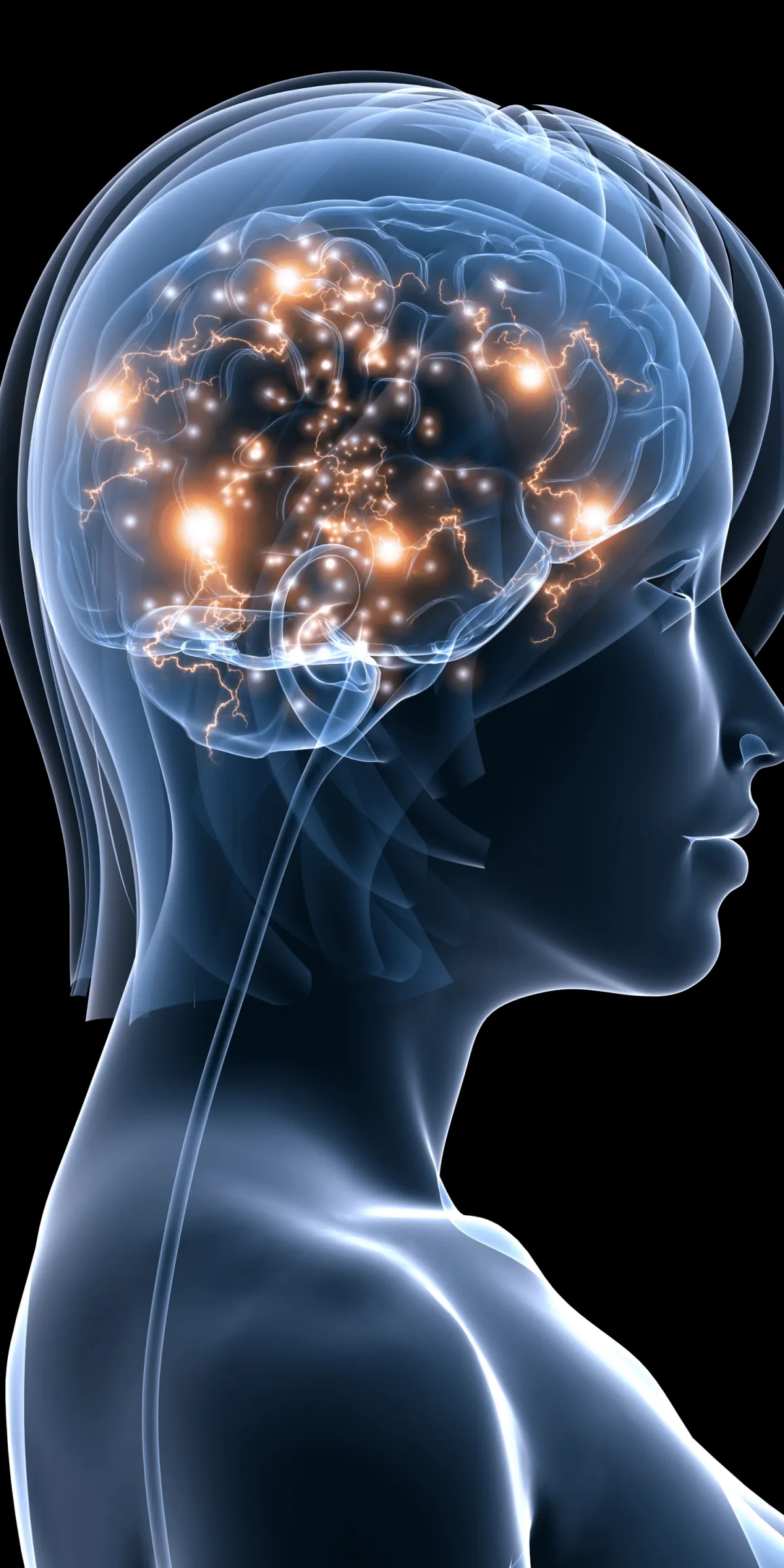
How does this relate to alcohol?
Consuming alcohol can cause spikes in dopamine and serotonin, leading to cravings and potential relapse. A 2006 study suggests that increasing your glycine intake, a type of amino acid may help reduce alcohol intake in people with AUD.
Wondering how glycine works its magic?
Here are the key points:
- By managing the release of dopamine, glycine helps reduce the need for alcohol.
- Glycine can act as a substitute for alcohol, thus helping to reduce cravings.
-
It also interacts with specific brain receptors (NMDA receptors) which can lead to a decrease in alcohol consumption.
-
It's noteworthy that controlling nerve cell activity is one of glycine's significant roles, hence, it is used in the treatment of some mental health conditions.
So, where can you find glycine? You'll be surprised:
Eating a cup of gelatin can give you a glycine boost! One serving holds more than 1300 mg of glycine, alongside other beneficial amino acids, providing a healing aid for those recovering from AUD.
Brain Cognition & The Power of Green Beans
We all know stress—it's an unavoidable part of life. Our bodies are built to respond and adapt to it, leaning on hormones and neurotransmitters to launch the 'fight or flight' response. This protects us from real or perceived threats.
Did you know that your drinking habits can impact your liver and cholesterol levels, which in turn affect your brain function?
Let's break it down:
-
Alcohol's Impact: Excessive alcohol consumption can burden your liver and impair its functions, including the crucial role of making cholesterol. An overworked liver can lead to a cholesterol build-up.
-
The Cholesterol Connection: Brain cholesterol helps to release neurotransmitters that affect our data processing and memory functions. However, higher cholesterol levels in your blood don't equate to improved brain functions due to the blood-brain barrier.
-
Statins and the Brain: Research indicates that statins, used to lower cholesterol, might also affect cholesterol in the brain.
Wondering how to effectively maintain healthier cholesterol levels? Enter green beans, your new dietary superstar:
- Green Beans & Cholesterol: Green beans (technically a legume), especially when steamed, may offer cholesterol-lowering benefits. They work by binding together with bile acids in your body.
-
Liver's Role: Once the green beans bind with bile acids, your liver jumps into action to replace them by breaking down cholesterol into new bile acids. This process results in a reduction in cholesterol levels in your bloodstream.
So, incorporating green beans into your diet not only adds color to your plate but could also help maintain healthy cholesterol levels and ultimately boost your brain function.
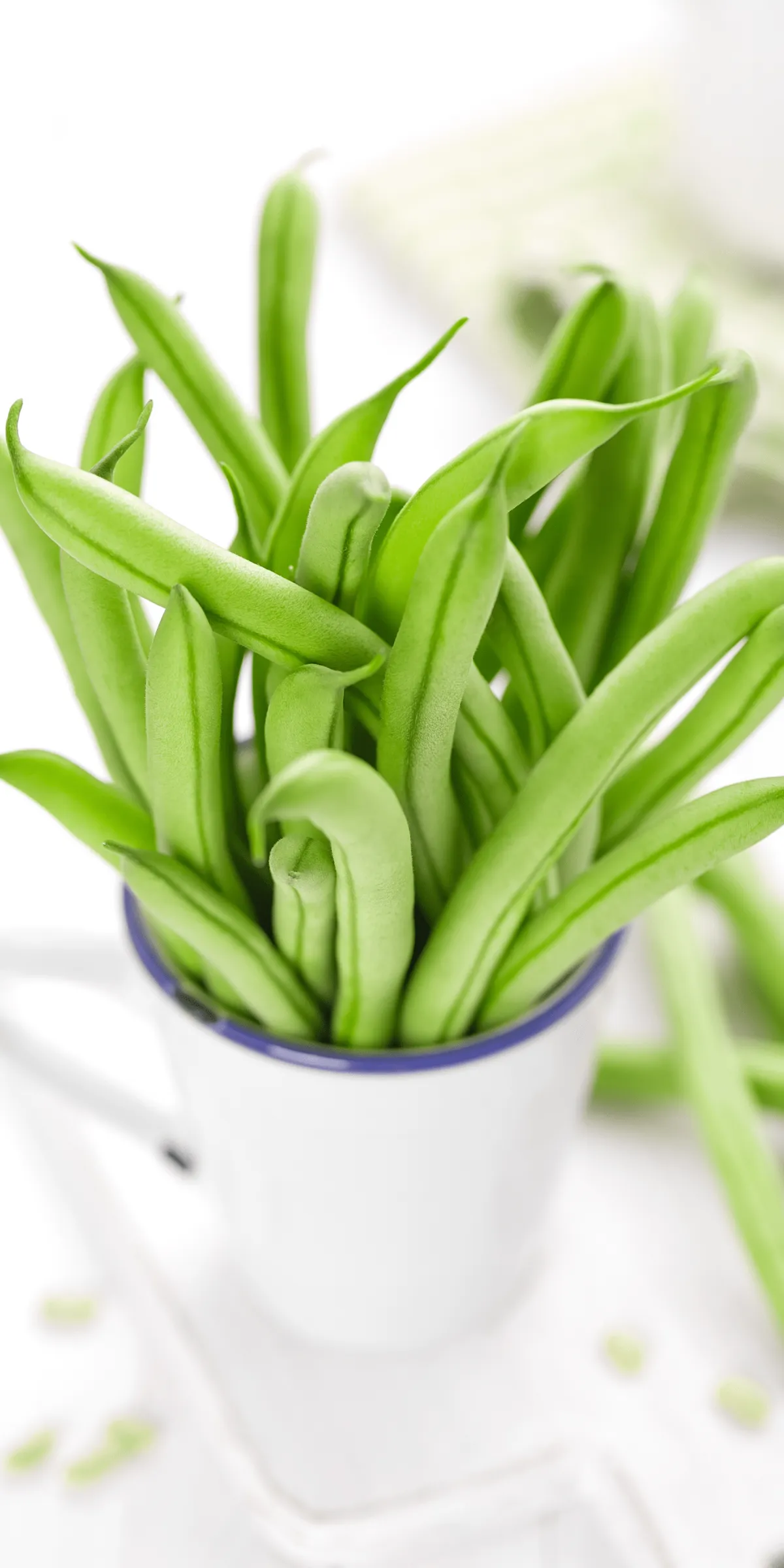
Chronic Stress & The Power of Roast Beef
We all know stress—it's an unavoidable part of life. Our bodies are built to respond and adapt to it, leaning on hormones and neurotransmitters to launch the 'fight or flight' response. This protects us from real or perceived threats.

Chronic inner conflict becomes a struggle we can't escape from...
forcing us to face it head on. But just like a boxing match, we all need a break. Without it, this continuous stress starts to affect other functions in our body.
Here's the simple breakdown:
-
Adrenaline:
This is our body's stress hormone. It triggers physical responses like high blood pressure and blood sugar release to prepare us for a fight or a flight. -
Tyrosine:
This amino acid is used by our body to produce adrenaline. Interestingly, it also contributes to the production of dopamine, our 'happiness' hormone. -
Happiness vs Survival:
When your body is under stress, it prioritizes survival over happiness. If you're experiencing chronic stress, it's going to get more challenging to feel happy as your body uses its resources to maintain balance.
So, how does roast beef fit into all this?
Well, it's loaded with tyrosine. In fact, roast beef contains over 150% of the Recommended Daily Intake (RDI) of this crucial amino acid. This means that a good cut of roast beef not only satisfies your taste buds, but also nourishes your mind. Invest in your wellness by choosing the best beef cut you can, and help your body better cope with stress.
Gallbladder Health & Collard Greens
As women age, certain lifestyle habits like regular alcohol consumption can increase health risks—one of them being the formation of gallstones, especially in women over 40. This can result in discomfort, sometimes even a sudden, intense pain under your chest plate that makes breathing difficult.
Let's dive into this:
- The Issue: Gallstones, which could be indicated by the mentioned symptoms, are often linked with regular alcohol consumption, which burdens your liver.
-
Liver's Role: An overworked liver may struggle to secrete bile into the gallbladder, which in turn, increases the risk of gallstones.
-
Choline to the Rescue: Studies have found that choline can boost bile flow and bile acid secretion, thereby helping to reduce gallstones.
The solution could be as simple as incorporating more collard greens into your diet:
Why Collard Greens:
These leafy greens are an excellent source of choline and have been found to lower blood cholesterol levels.
Bonus:
Collard greens are part of the cruciferous vegetable family and are usually one of the most affordable options!
So, if you're seeking a delicious, cost-effective way to support your gallbladder health, look no further than adding more collard greens to your meals.

Tackle Morning Fatigue with Shiitake Mushrooms
Ever wake up feeling like you didn't catch a wink of sleep? It's a common symptom among women who regularly enjoy their evening wine or cocktails, and it could be a sign of copper deficiency. Excessive alcohol consumption has been linked to this issue as per a 2017 study.

Here's why copper matters:
-
Copper is an essential element, is absorbed in your small intestine and transported throughout your body by your liver—two organs that alcohol can harm over time.
-
With copper being a crucial part of many enzymes, it has a significant role particularly in our bone marrow (the birthplace of red blood cells) and nervous system.
-
Being deficient in copper can cause irregularities in red blood cells and conditions like anemia, leading to morning fatigue and a lack of energy all day.
So, how can you boost your copper intake? The answer might lie in shiitake mushrooms:
- Shiitake Mushrooms for Copper: These mushrooms are an excellent source of copper. Just about 15 grams of dried shiitake mushrooms can provide you with 89% of the recommended daily intake of copper.
So next time you're looking for an energy boost, consider adding shiitake mushrooms to your diet—it might just be the wake-up call your body needs.
Understanding the Link Between Cucumbers, Estrogen, & Cravings
For many women, heightened estrogen levels during the follicular phase of their menstrual cycle can increase sensitivity to alcohol's addictive effects.
The dopamine activity and alcohol-sensitive brain cells in the brain's reward center are triggered more when estrogen levels are high. Fortunately, nature offers a simple, crunchy solution – cucumbers.
Why Cucumbers?
- Cucumbers are rich in lignans, a type of phytoestrogen. These compounds are known to have anti-estrogenic activities. They function like estrogen in the body and can bind to estrogen receptors, helping to keep estrogen levels in check.
-
Besides their hormone-balancing effect, lignans are also potent antioxidants. They aid in lowering inflammatory markers in the body, contributing to overall health and well-being.
Incorporating cucumbers into your diet could be a practical and tasty strategy to manage alcohol cravings during periods of increased estrogen levels. Besides, their antioxidant properties are an added health bonus.
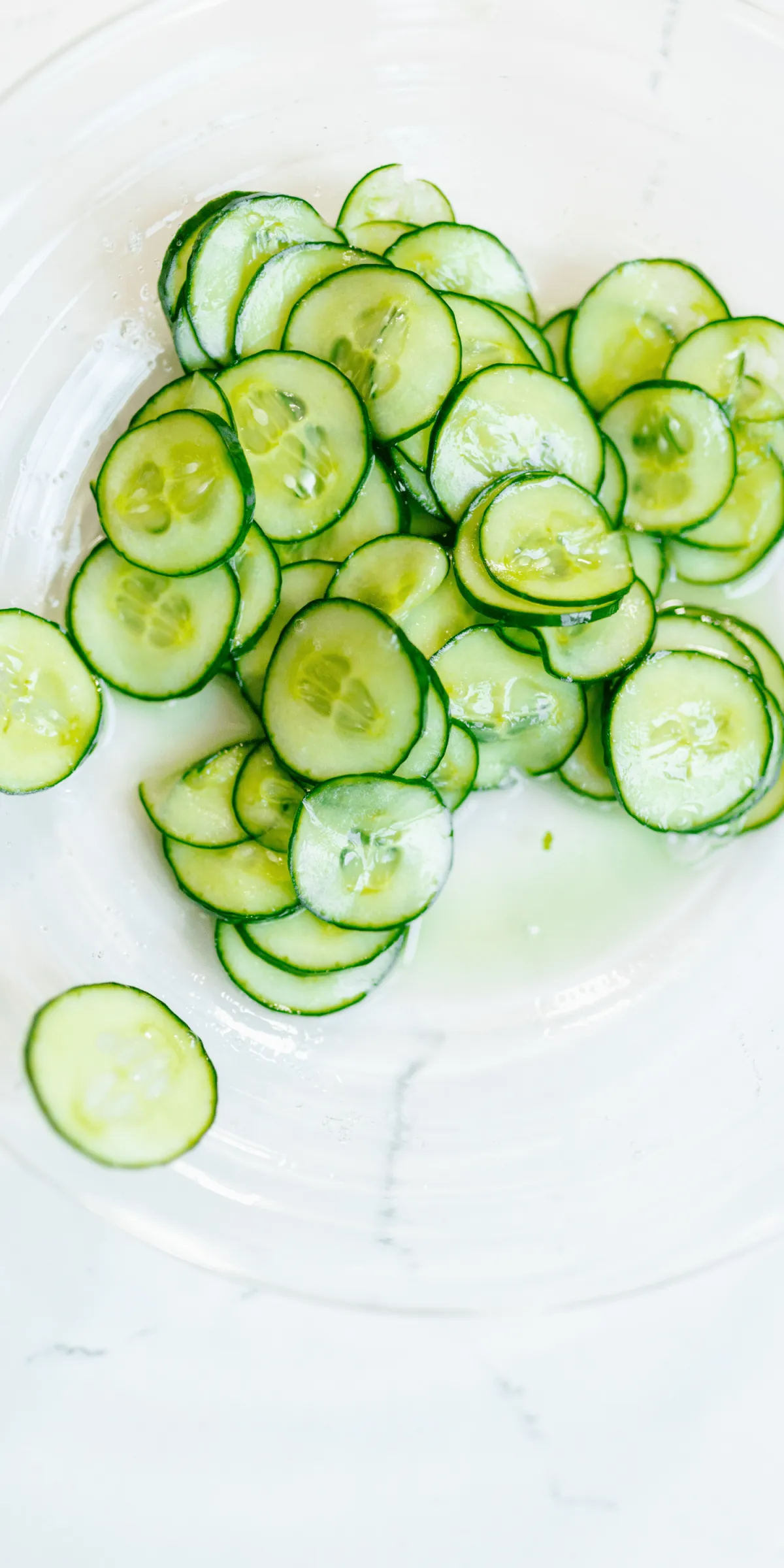
Boosting Abstinence with Spinach & Unlocking the Power of Rubiscolin Peptides
Spinach is not only nutritious but also an ally in maintaining abstinence. It contains rubiscolin peptides which can stimulate beneficial pathways in the brain similarly to alcohol, but without the negative side-effects.
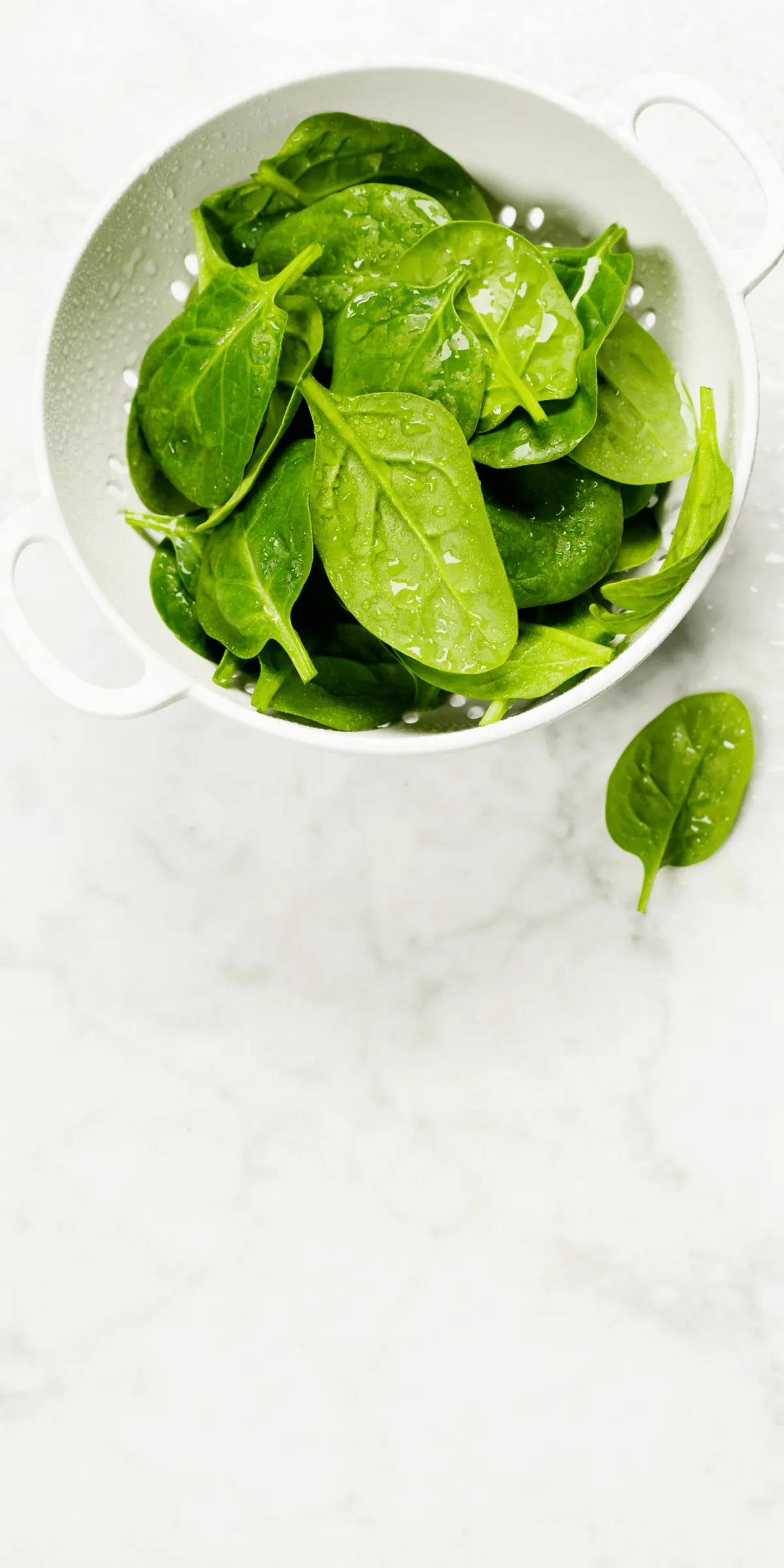
Key Facts:
- Opioid Receptors and Alcohol Use: Opioid receptors in our brain are involved in the development and continuation of alcohol use disorder. Alcohol triggers the release of opioid peptides in parts of the brain associated with alcohol's reward and reinforcing effects.
-
The Role of Rubiscolin Peptides: Spinach contains rubiscolin peptides that can cross the blood-brain barrier and activate beneficial brain pathways without triggering the negative reinforcement pathways of the opioid receptors.
-
Potential for Medical Use: The power of these peptides is so significant that researchers are exploring them as potential synthetic medicines to treat alcohol use disorder.
What's a simple way to incorporate spinach and its beneficial peptides into my diet?
Adding fresh spinach to your smoothies is a great way to include this green powerhouse in your daily routine. It's a tasty and nutritious way to aid your journey to abstinence.
This leafy green is more than a nutritional champion; it's an ally in maintaining abstinence. Adding it to your daily meals, such as a nutritious smoothie, provides essential nutrients and supports healthy brain function. It's clear that spinach, a humble vegetable, holds promising potential in the fight against alcohol use disorder.
Crunchy Radishes The Powerhouse for Brain Health
Radishes, known for their crisp texture and peppery taste, carry a secret weapon for brain health – anthocyanins. This flavonoid antioxidant, responsible for the plant's pigment, showcases remarkable neuroprotective effects.
Did you know that your drinking habits can impact your liver and cholesterol levels, which in turn affect your brain function?
But how do they counter alcohol-induced damage?
- Anthocyanins can cross the blood-brain-barrier, distributing in the cerebellum, cortex, hippocampus, and striatum, brain regions highly susceptible to alcohol exposure.
-
These compounds scavenge alcohol-induced reactive oxygen species (free radicals), mitigating damage to the brain and central nervous system.
-
They alleviate alcohol-induced impairments, such as oxidative stress, inhibition of neuronal differentiation (cell form and function), and spatial memory deficits.
What makes radishes beneficial for brain health?
Radishes contain anthocyanins, a type of antioxidant, that can cross the blood-brain barrier. These compounds help protect brain regions that are vulnerable to alcohol exposure. They alleviate alcohol-induced damage and improve memory deficits caused by alcohol.
In the world of brain-friendly foods, radishes take a top spot. Their rich anthocyanin content acts as a neuroprotective shield, making them an underrated champion in combating alcohol-induced brain damage.
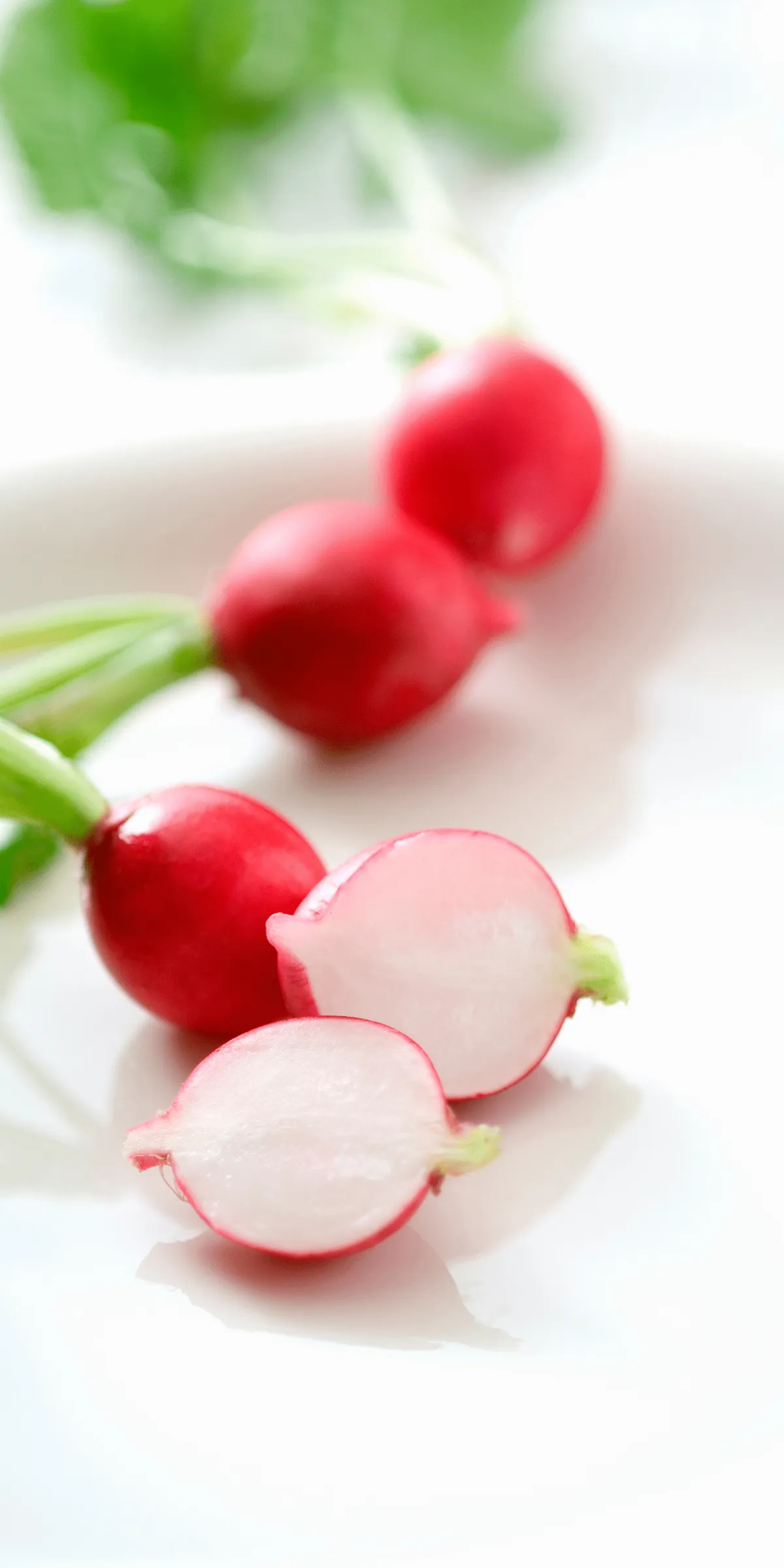
Boosting Memory with Zucchini
Zucchini, especially its green outer skin, is a power-packed source of lutein—an antioxidant renowned for preventing neurodegenerative diseases and cognitive deficits. Its easy cultivation and high yield make it a perfect addition to your kitchen and health regimen.

So, how exactly does Zucchini work its magic?
Let's break it down:
- Memory Protection: Regular consumption of alcohol can lead to memory deficits and increased activity of acetylcholinesterase—an enzyme that ends the transmission of chemicals between brain cells. Lutein in zucchini has been shown to reverse these alcohol-induced memory deficits and mitigate acetylcholinesterase activity.
-
Liver Defense: Apart from its neuroprotective qualities, lutein also serves as a guard against alcohol-induced liver injuries. Its powerful antioxidant properties shield your liver from harm.
How does lutein in zucchini counteract the harmful effects of alcohol?
Lutein, an antioxidant found in zucchini, has been proven to reduce alcohol-induced memory deficits, regulate acetylcholinesterase activity, and protect against liver damage caused by alcohol.
Incorporating zucchini into your diet is not just a flavorful decision—it's a smart move for your brain health, especially if you're grappling with the after-effects of alcohol consumption. With its protective qualities, this summer squash stands out as a memory and liver health champion!
Nourish Your Gut and Keep Ulcers at Bay with the Nutrient-Dense Cabbage
Chronic alcohol consumption can lead to noticeable adverse effects on your digestive system, such as regular indigestion, stomach discomfort, or bloating. Even the suspicion of an ulcer can be unnerving. Enter cabbage—a humble vegetable packed with nutrients that offer substantial benefits for stomach health during abstinence.
How does long-term alcohol consumption impact your digestive health?
Regular indulgence in wine or cocktails can result in a range of digestive issues, from indigestion and bloating to more severe conditions like stomach ulcers.
Understanding the Power of Cabbage:
- Glucosinolates Galore: Cabbage contains glucosinolates, compounds that your body uses to produce isothiocyanates.
-
Bacterial Balance: Isothiocyanates regulate the bacterial populations within your stomach, tackling potential contributors to ulcers and digestive discomfort.
How does cabbage help alleviate symptoms associated with stomach ulcers?
The isothiocyanates, produced from glucosinolates found in cabbage, help to balance bacterial populations in the stomach, thus reducing factors that contribute to ulcers and general stomach discomfort.
If you're grappling with digestive discomfort due to prolonged alcohol consumption, consider incorporating cabbage into your diet. Its rich nutrient profile can help restore balance to your gut health, aiding in your journey towards recovery and wellness.

Curbing Cravings with Pork Chops
If you're on the journey of alcohol abstinence, you might experience intense cravings. Fortunately, our diet can play a significant role in managing these urges. Enter pork chops - an excellent source of the amino acid cysteine, which has been found to aid in reducing alcohol-seeking behaviors.
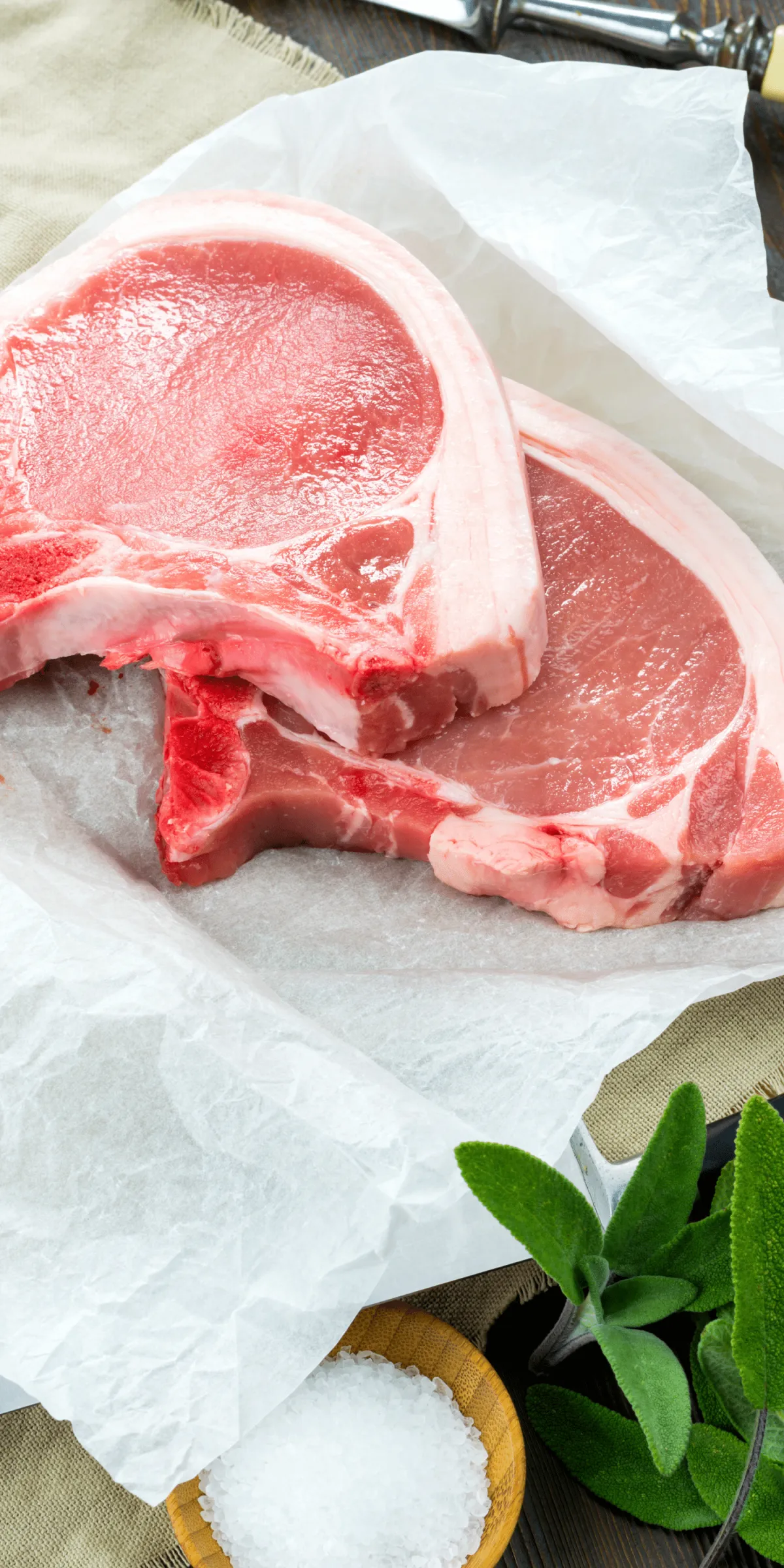
Have you wondered how pork chops can help you fight cravings?
Let's check it out:
- Glutamate Regulation: Glutamate, an excitatory neurotransmitter, regulates brain activity and energy levels. Chronic alcohol use can suppress its release, affecting our brain function.
-
The Power of N-acetyl cysteine (NAC): This compound helps boost glutamate transporters (specifically GLT1) in the brain, reducing alcohol-seeking behavior and alcohol intake in cases of chronic alcohol use.
-
Cysteine Source: Pork chops are rich in cysteine, an amino acid that forms NAC in our bodies. This boost can help control alcohol cravings, providing more than 207% of the recommended daily intake.
How does glutamate affect our brain activity?
As an excitatory neurotransmitter, glutamate increases brain activity and energy levels, which can be suppressed by chronic alcohol use.
How can incorporating pork chops into my diet help with alcohol cravings?
Pork chops are high in cysteine, an amino acid that forms N-acetyl cysteine (NAC) in the body. NAC has been shown to enhance glutamate transporters, reducing alcohol-seeking behaviors, and subsequently, alcohol intake.
Managing cravings can be a significant hurdle in the journey towards alcohol abstinence. Incorporating cysteine-rich foods like pork chops into your diet can play a pivotal role in overcoming this challenge. Balance your diet, control your cravings, and continue your journey towards healthier living.
Combatting Breast Cancer Risk with Red Cabbage
Women's risk of breast cancer can increase significantly with daily alcohol consumption. But there's hope in our diets - studies show that red cabbage contains compounds that can help in the fight against this disease.
Interested in how red cabbage can combat breast cancer risk?
Here's how:
- Increased Risk: Research indicates that even 1-2 drinks per day can increase a woman's risk of breast cancer by 30-50%.
-
Beneficial Compounds: Red cabbage contains substances that play an essential role in treating diseases such as breast cancer.
-
Study Findings: A 2015 study found that serum derived from red cabbage effectively inhibited the growth of breast cancer cells and sped up their death through apoptosis induction, with no effect on normal cells.
How can daily alcohol consumption affect my risk of breast cancer?
Even moderate drinking (1-2 drinks per day) can increase a woman's risk of breast cancer by 30-50%.
How does red cabbage contribute to breast cancer treatment?
Red cabbage contains beneficial compounds that can inhibit the growth of breast cancer cells and accelerate their death while not affecting normal cells.
While regular alcohol consumption can increase breast cancer risk, incorporating red cabbage into your diet can potentially offset this risk. Let's take advantage of this vibrant vegetable's health benefits as we pursue a healthier lifestyle.

Blueberries: Your Liver's Ally Against Alcohol Damage
The liver, an organ with over 500 functions, is significantly impacted by regular alcohol consumption. The antioxidant power of blueberries can help support liver recovery from alcohol-induced damage.
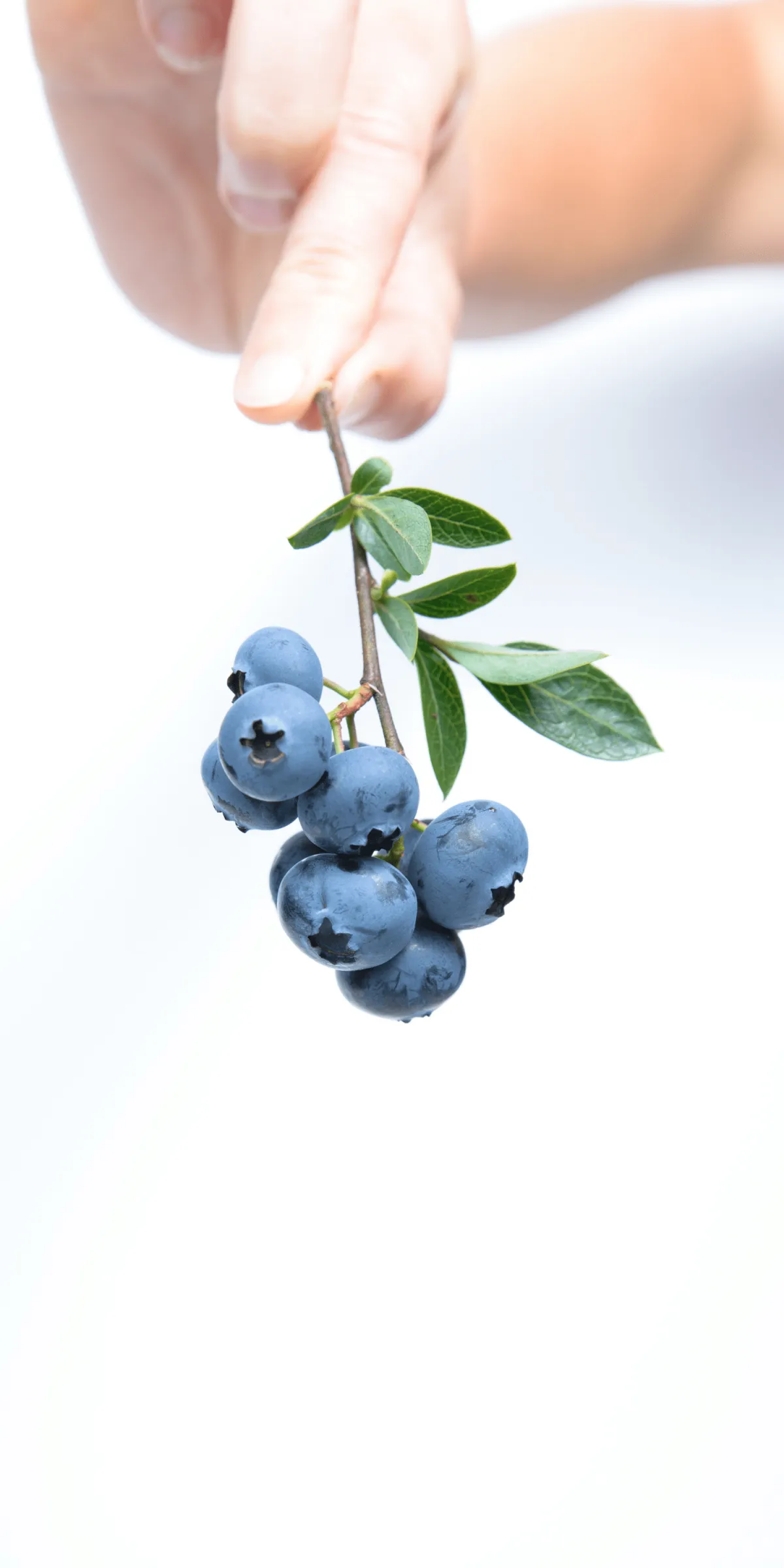
Curious about how blueberries support your liver?
Let's explore:
- Alcohol and the Liver: Regular alcohol consumption puts immense stress on the liver, causing cell death due to oxidative stress.
-
The Antioxidant Solution: Antioxidants can combat oxidative stress and alleviate alcohol-induced liver cell death.
-
Blueberries to the Rescue: Blueberries contain quinic acid, a compound that has high antioxidant activity and aids DNA repair in liver cells.
What impact does regular alcohol consumption have on the liver?
Regular alcohol intake leads to oxidative stress, causing liver cell death and potentially leading to conditions like fatty liver disease.
How can blueberries assist in combating alcohol-induced liver damage?
Blueberries are rich in quinic acid, a compound with high antioxidant activity that improves DNA repair in liver cells, thus helping to counteract alcohol-induced damage.
While alcohol can cause significant stress and damage to the liver, the inclusion of antioxidant-rich blueberries in your diet can provide essential support to your liver. Whether tossed in a salad, paired with steamed veggies, or enjoyed as a side dish, blueberries offer a tasty and beneficial boost to your meals.
Discover How the Humble Tomato Can Help Reduce the Harmful Impact of Alcohol
The traditional advice "Never drink on an empty stomach" holds considerable scientific merit. The act of consuming food, particularly a tomato-rich diet, can assist in controlling the level of alcohol that enters your bloodstream, thereby preventing potential harm.
Considering the importance of tomatoes in managing blood alcohol levels, here's a straightforward explanation:
- Food and Alcohol Absorption: Eating food slows the transfer of alcohol from the stomach to the small intestine, subsequently decreasing the amount of alcohol absorbed into your bloodstream.
-
The Role of Tomatoes in Alcohol Elimination: Tomatoes are packed with alanine, an amino acid that contributes to alcohol oxidation in the liver, facilitating its removal.
-
A Dual-Action Approach: Alanine's role in promoting alcohol oxidation is complemented by the dietary fibers in tomatoes, which can absorb alcohol. This process further retards the movement of alcohol from the stomach, boosting its elimination.
Fun Facts:
What's the reasoning behind the advice to avoid drinking alcohol on an empty stomach?
Consuming alcohol on an empty stomach can accelerate the absorption of alcohol into the bloodstream, enhancing its potential to cause harm. The presence of food can slow down this process, thereby reducing the adverse effects.
How exactly do tomatoes assist in regulating blood alcohol levels?
Tomatoes are rich in an amino acid called alanine, which aids in the oxidation and removal of alcohol in the liver. Furthermore, the dietary fibers present in tomatoes have the ability to absorb alcohol, which delays its transfer from the stomach to the small intestine, thereby aiding in its elimination.
Incorporating tomatoes into your meals can significantly aid in managing the effects of alcohol on your body. By facilitating alcohol oxidation and slowing its absorption, tomatoes provide a natural and effective method to counteract the damaging impact of alcohol.
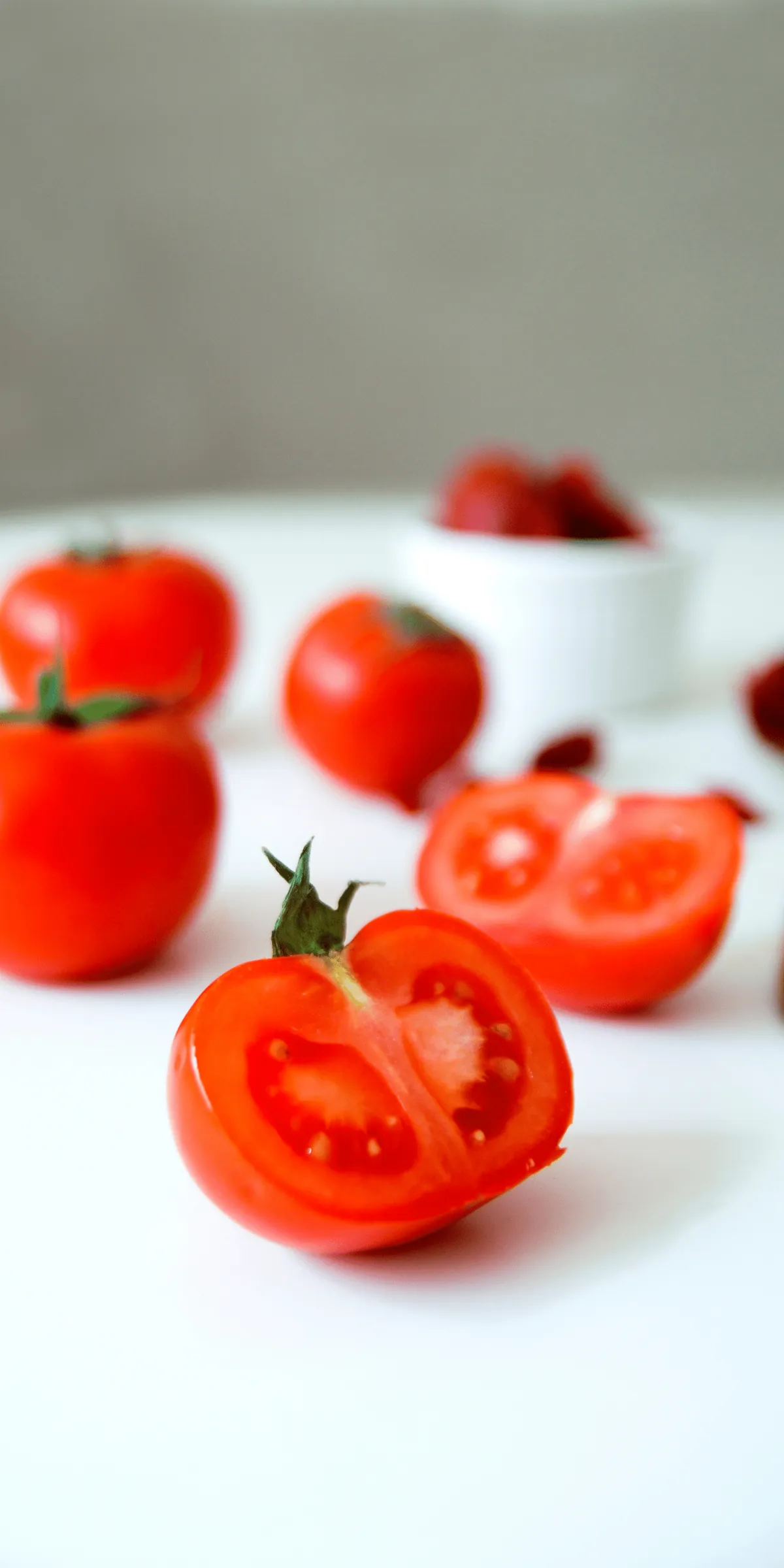
Uplifting Mood with Cucumber An Unexpected Ally Against Depression
Chronic alcohol use can lead to or exacerbate depression symptoms. This includes low moods, a lack of energy, and an inability to experience pleasure lasting for at least two weeks.

Low levels of high-density lipoprotein (HDL) cholesterol, often called "good" cholesterol, have been associated with these negative mood states.
Key Information:
- HDL cholesterol plays an essential role in neuronal function, influencing aspects like cell integrity, neurotransmitter release, membrane fluidity and permeability, and cell plasticity.
-
Irregularities in these functions have been associated with depression, likely due to the role of lipids in protein function at a molecular level.
-
Women with low HDL cholesterol levels are particularly vulnerable to depression.
How can cucumber help in improving mood and combating depression symptoms?
While more research is needed, cucumbers—especially their seeds—could be a simple and natural way to help increase HDL cholesterol levels and potentially uplift mood.
Probiotic Powerhouse Kimchi's & It's Role in Supporting Recovery from Alcohol-Related Liver Damage
Regular consumption of alcohol can cause significant injury to the liver, but probiotics—like those found in kimchi—may help. This fermented vegetable dish, a staple in Korean cuisine, is loaded with beneficial probiotics that can support your body's recovery process from alcohol use disorder.
What are the key pieces of information to know about kimchi's role in alcohol recovery?
- Probiotics in kimchi help reduce levels of alcohol-induced inflammatory cytokines and production of reactive oxygen species in the liver and intestines.
-
These probiotics have been shown to decrease elevated liver enzymes (AST & ALT) in patients with mild alcohol-induced liver injury.
-
A healthy liver is critical for maintaining balance in hormone and neurotransmitter levels.
How does kimchi help in mitigating alcohol-induced liver injury?
Kimchi contains probiotics that reduce alcohol-induced inflammatory cytokines and reactive oxygen species in the liver and intestines, and also decrease elevated liver enzymes in patients with mild alcohol-induced liver injury.
Where can I find or how can I make kimchi?
Kimchi can often be found in the refrigerated section of your local health food store. Alternatively, it can be made at home using a variety of recipes available online.
Consuming probiotic-rich foods like kimchi could be a simple and tasty way to support liver health and recovery from alcohol-induced damage. Incorporating kimchi into your diet could be a valuable step in your recovery journey.

Uncover the Immune-Boosting Powers of Winter Squash in Alcohol Recovery
Learn how winter squash, rich in carotenoids that convert into Vitamin A, supports immune function against the impact of chronic alcohol intake.
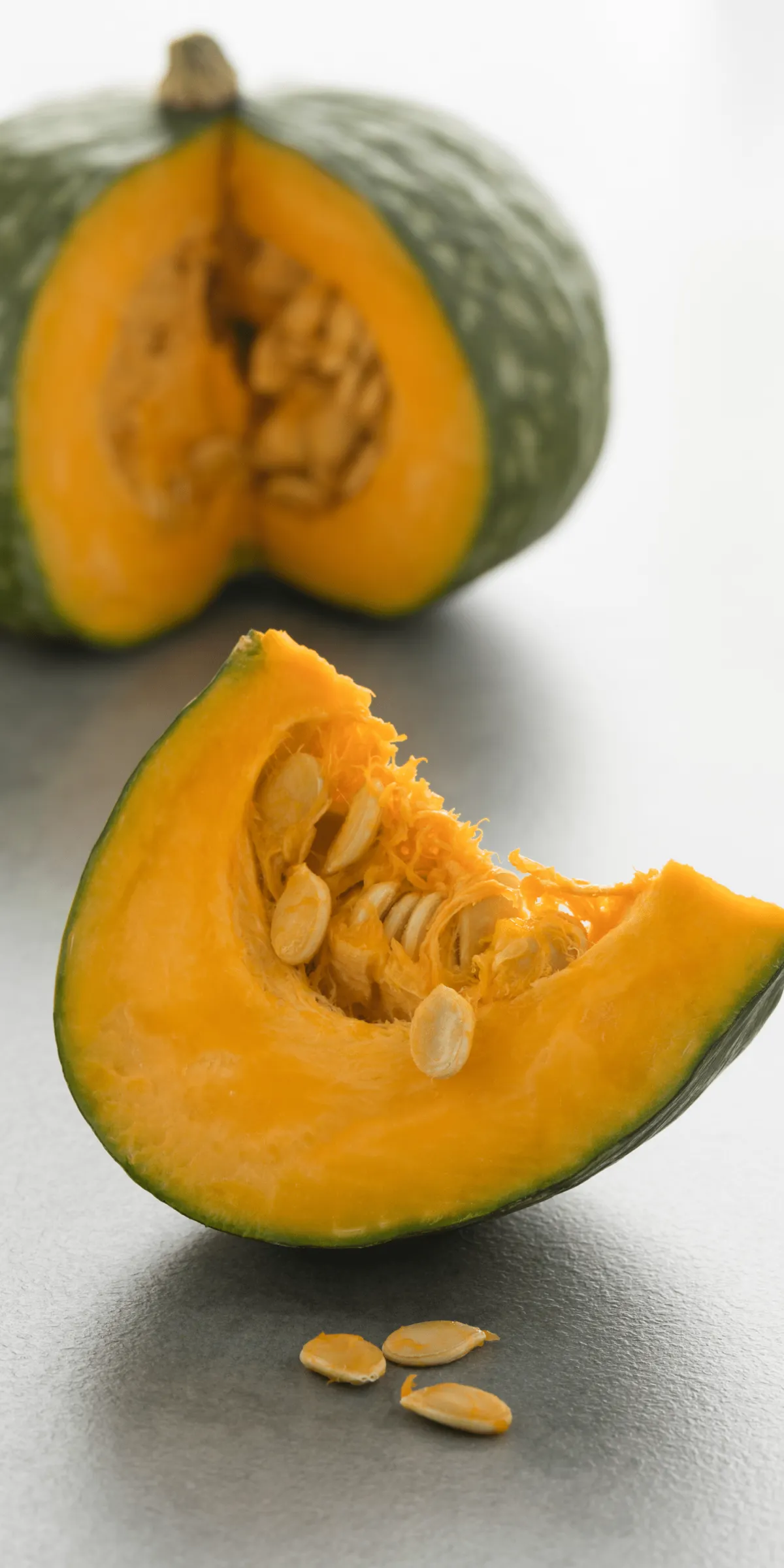
Winter squash, such as acorn squash, are packed with carotenoids like beta-carotene and alpha-carotene, which our bodies convert into active forms of Vitamin A. Interestingly, alcohol and Vitamin A metabolism follow similar paths, which may explain why alcohol consumption can negatively affect Vitamin A levels in the body. Even with normal blood levels, liver stores of Vitamin A can be depleted due to alcohol intake.
Why is Vitamin A so crucial in maintaining a healthy immune system while recovering from chronic alcohol use?
- Vitamin A's Importance: This essential nutrient optimizes the functioning of white blood cells, supports the health of mucous lining barriers, stimulates mucus production, and blocks the activity of certain viruses.
-
Alcohol and Vitamin A: Alcohol metabolism can disrupt Vitamin A balance in the body, leading to potential immune system vulnerabilities, even when blood levels of Vitamin A appear normal.
-
Winter Squash as a Solution: By including winter squash in your diet, you can help replenish your body's Vitamin A levels, supporting immune system function during alcohol recovery.
How does alcohol consumption affect Vitamin A levels in the body?
Alcohol metabolism and Vitamin A metabolism follow a similar pathway, which can lead to disruptions in Vitamin A balance. Despite blood levels appearing normal, liver stores of Vitamin A may be depleted due to alcohol intake.
Embracing a diet rich in winter squash can help ensure a sufficient intake of Vitamin A, thereby providing immune system support that's particularly beneficial during alcohol recovery. This is another testament to the power of nutritious food in aiding the body's resilience and health restoration.
Unleash the Power of Asparagus Against Alcohol-Induced Cellular Toxicity
Alcohol negatively impacts every cell in your body, and reversing this damage is crucial for recovery. Asparagus, with its rich content of amino acids and minerals, offers substantial benefits in reducing alcohol-induced cellular toxicity.
Wondering How Asparagus Can Help?
Consider These Facts:
- Cellular Toxicity: Asparagus extracts, rich in amino acids and inorganic minerals, have been scientifically shown to reduce cellular toxicity triggered by alcohol.
-
Liver Health: The insoluble fiber and flavonoids in asparagus help improve blood cholesterol levels and alleviate oxidative damage in liver cells.
How can asparagus help in reversing cellular damage induced by alcohol?
Asparagus is loaded with amino acids and inorganic minerals that have been found to decrease alcohol-induced cellular toxicity. Its extracts actively work at the cellular level to counteract the harmful effects of alcohol.
Can asparagus contribute to liver health?
Absolutely! Asparagus contains insoluble fiber and flavonoids that not only improve blood cholesterol levels but also mitigate oxidative damage in liver cells. This makes it a significant addition to your diet for liver health and overall recovery.
Adding asparagus to your diet can help combat the cellular toxicity caused by alcohol, enhancing liver health and contributing to your overall recovery journey. Remember, every nutritious bite is a step toward healing.

Harness the Mood-Boosting Power of Blackstrap Molasses
An unexpected sweetener that plays a significant role in mitigating the brain damage and psychological issues caused by chronic alcohol abuse. Rich in inositol, iron, calcium, and B-vitamins, blackstrap molasses is a potent ally in mood enhancement and brain repair during alcohol recovery.
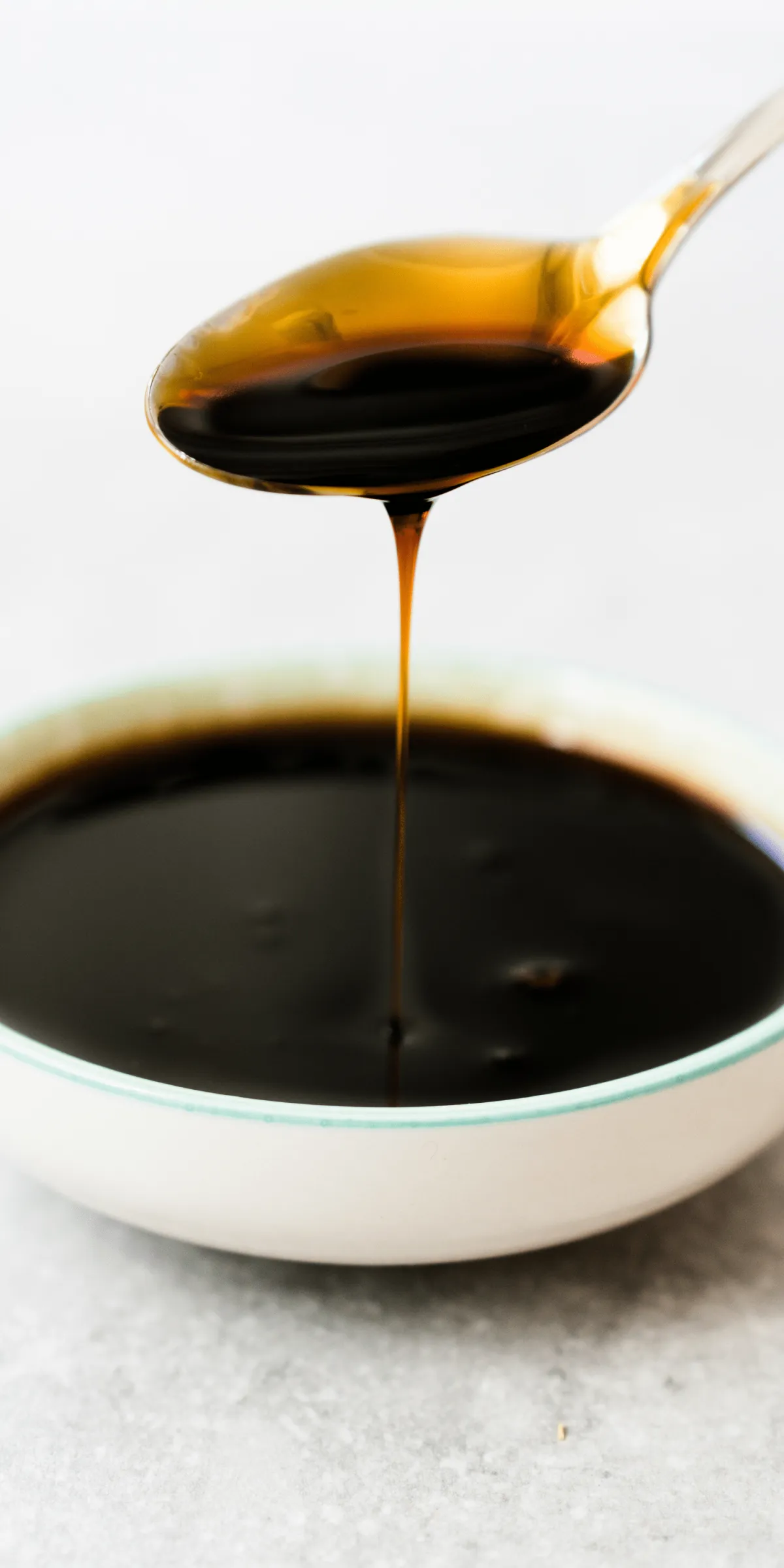
Why Should You Consider Blackstrap Molasses?
Let's Dive In:
- Brain Repair: Blackstrap Molasses contains inositol, which has been linked to the brain's self-repair processes during detox and abstinence from alcohol.
-
Mood Regulation: Low levels of inositol are associated with low moods. Incorporating inositol-rich blackstrap molasses into your diet can aid in the regulation of mood-boosting neurotransmitters like dopamine, serotonin, and norepinephrine.
How can blackstrap molasses support brain repair during alcohol recovery?
Blackstrap molasses is rich in inositol, a nutrient that plays a crucial role in stabilizing the environment inside brain cells and activating brain cell connective tissue. These processes are critical to the brain's self-repair mechanisms during alcohol detox and abstinence.
Can blackstrap molasses help improve my mood during alcohol recovery?
Yes, it can. Inositol, found in blackstrap molasses, is crucial for regulating mood-boosting neurotransmitters such as dopamine, serotonin, and norepinephrine. Therefore, incorporating blackstrap molasses into your diet may help lift your mood during alcohol recovery.
Incorporating blackstrap molasses into your diet can not only support brain repair but also enhance mood regulation during alcohol recovery. This sweetener offers more than just a sugar substitute—it's a unique tool in your recovery journey.
The Surprising Connection Between Beef and Brain Reward Function During Alcohol Abstinence
Learn how beef, packed with essential amino acids, aids in regulating reward functions in the brain during alcohol recovery.
As you navigate the journey to alcohol recovery, maintaining optimal dopamine levels, the "feel-good" neurotransmitter, becomes critical in preserving reward functions in the brain. In this context, beef could play a substantial role. The secret lies in ghrelin, a gut-brain peptide produced predominantly in the stomach's lining and enriched with key amino acids found abundantly in beef. Chronic alcohol intake can harm the stomach, causing a drop in ghrelin levels, and consequently disrupting the release of dopamine. Therefore, incorporating beef into your diet can provide these vital amino acids, assisting in restoring ghrelin and, subsequently, dopamine levels.
Ever wondered how beef can aid in alcohol recovery?
Here's the science:
- Ghrelin, a gut-brain peptide brimming with essential amino acids, plays a significant role in modulating dopamine, which governs reward functions in the brain.
-
Chronic alcohol consumption can deteriorate the stomach, leading to a drop in ghrelin and, subsequently, dopamine levels.
-
Beef is a rich source of critical amino acids such as phenylalanine, serine, and glycine, which bolster the production of ghrelin and dopamine.
How does consuming beef help restore dopamine levels during alcohol recovery?
Beef is an excellent source of crucial amino acids that form ghrelin—a peptide responsible for stimulating dopamine release in the brain. By incorporating beef into your diet, you can potentially restore the levels of ghrelin, and subsequently dopamine, disrupted by chronic alcohol intake.
Incorporating beef into your diet isn't just about satisfying your taste buds. It's a significant step in maintaining brain reward functions during your journey towards alcohol recovery.
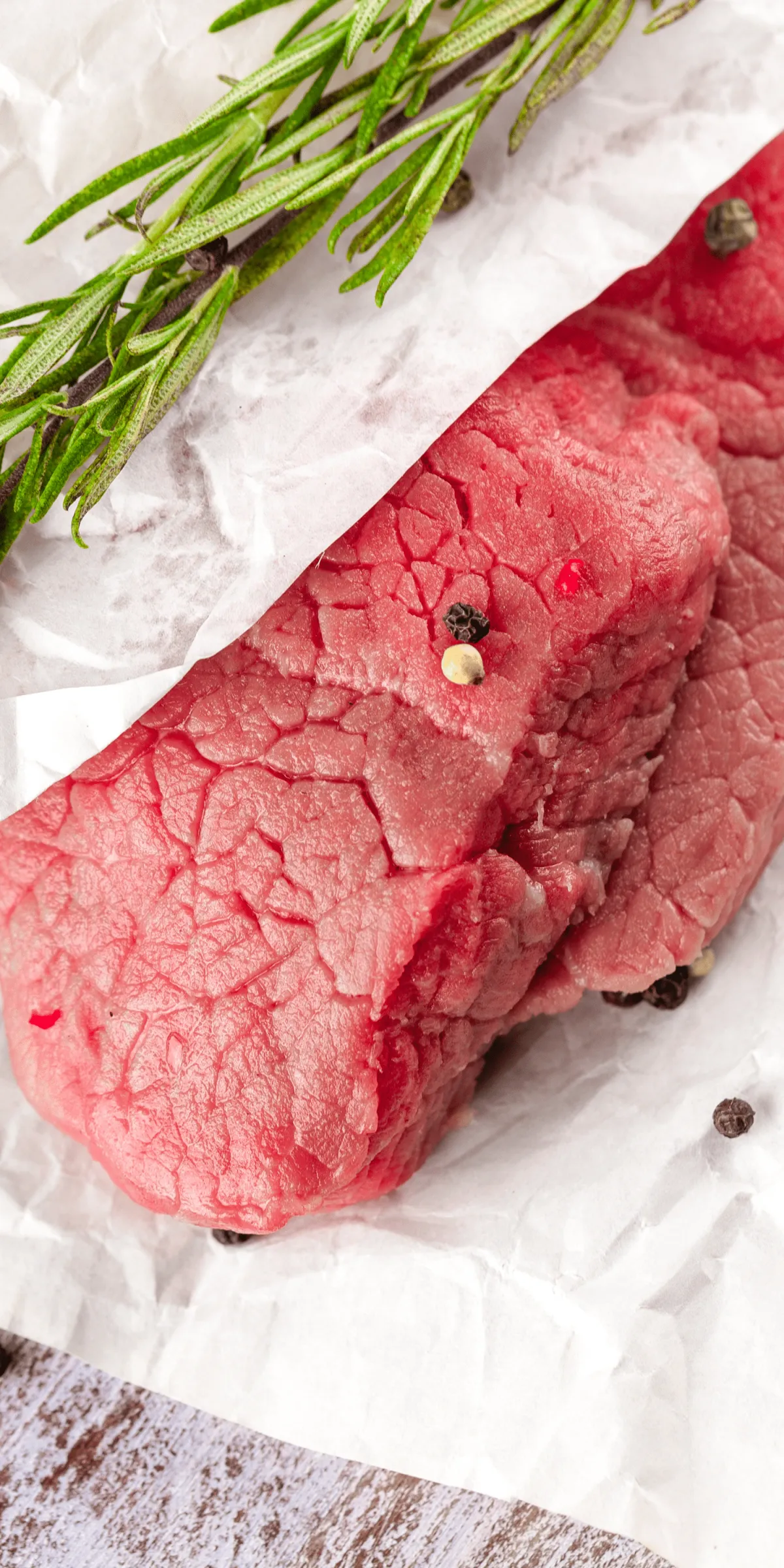
Shrimp A Surprising Ally in Mitigating Anxiety During Alcohol Recovery
Navigating through the anxiety associated with alcohol recovery can be a daunting task, but the nutritional powerhouse shrimp could be of great help. This small seafood creature packs a punch of choline, a crucial nutrient for our stress response system. Choline is integral to the creation of norepinephrine and adrenaline, two hormones that guide our response to stress.
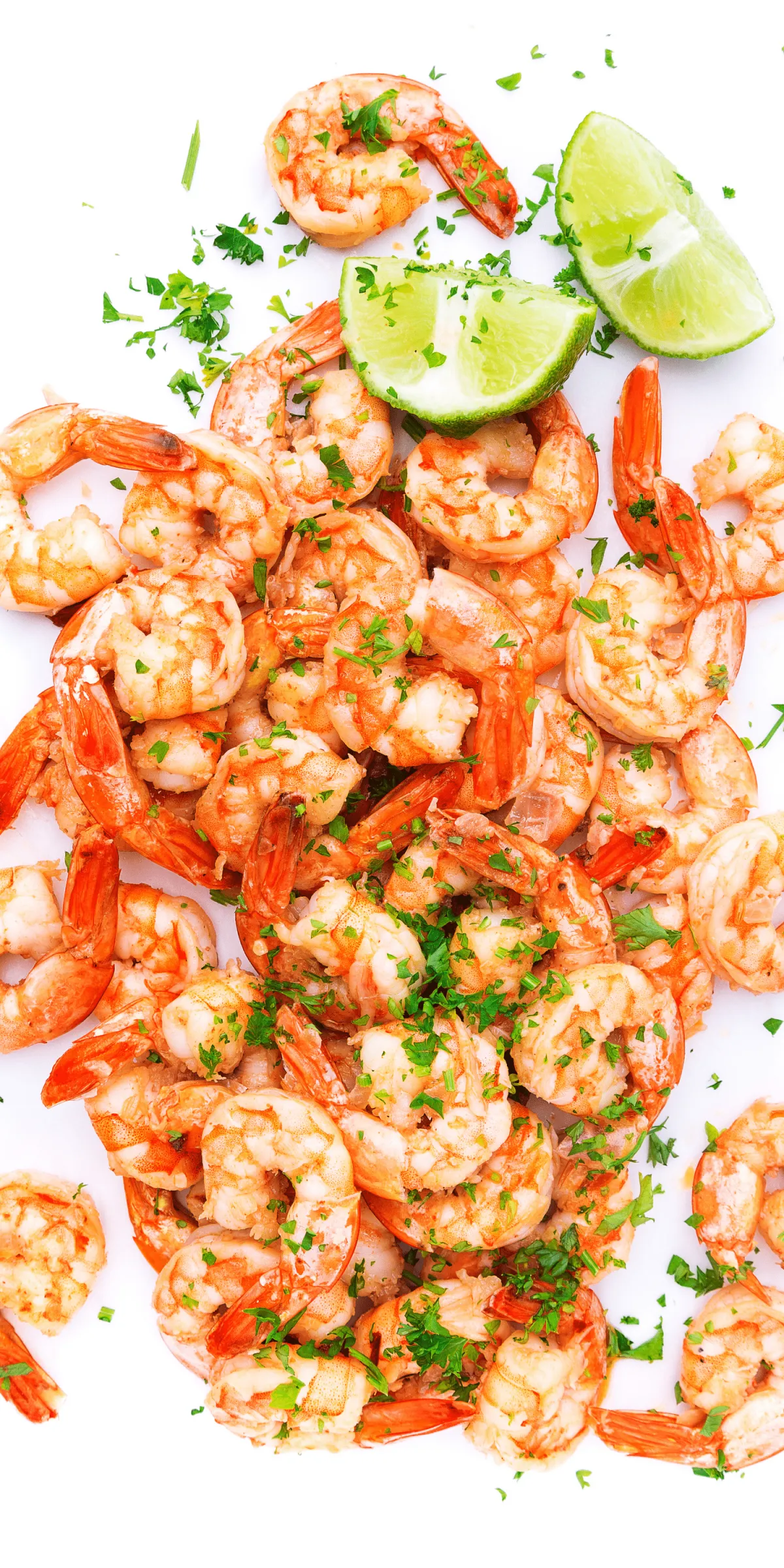
Need a nutritious ally in your battle against alcohol recovery-related anxiety?
Consider shrimp:
- Shrimp is a choline powerhouse, a nutrient fundamental for the creation of stress response hormones norepinephrine and adrenaline.
-
Research indicates a potential correlation between lower choline levels and increased anxiety symptoms.
-
One serving of shrimp provides over 35% of the recommended daily choline intake.
How can shrimp consumption aid in reducing anxiety during alcohol recovery?
Shrimp is rich in choline, a vital nutrient involved in the creation of stress response hormones norepinephrine and adrenaline. Lower choline levels have been associated with heightened anxiety symptoms. Therefore, incorporating shrimp into your diet can potentially support your stress response system and alleviate anxiety during alcohol recovery.
Anxiety might be a significant hurdle in the journey towards alcohol recovery. But, with the right nutrition like choline-rich shrimp, managing anxiety can become a less daunting task. Remember, every step you take in nurturing and supporting your stress response system counts.
Harness the Power of Dandelions to Counteract Liver Damage from Alcohol
Discover how dandelions, often overlooked as weeds, can assist in detoxifying the liver and improving conditions like cirrhosis in the context of alcohol recovery.
Alcohol use disorder (AUD) can inflict significant metabolic damage on all body cells, with the liver taking a brunt of this impact. When alcohol bypasses the standard digestion process, it goes directly into the bloodstream and consequently to the liver. The liver then slows down its other vital functions to process alcohol, making it susceptible to conditions like fatty liver, steatohepatitis, fibrosis, and cirrhosis. However, hope might be closer than you think - in your backyard. Dandelion greens and roots have been proven to aid liver detoxification and alleviate cirrhosis symptoms.
Key Facts You Need to Know about Alcohol-Induced Liver Damage and Dandelions?
- AUD can significantly damage the liver, causing conditions like fatty liver, steatohepatitis, fibrosis, and cirrhosis.
-
During alcohol processing, the liver slows down other essential functions, increasing its vulnerability to disease.
-
Dandelions, both greens, and roots, have been found to promote liver detoxification and support improvements in cirrhosis.
How can dandelions help improve liver health in the context of alcohol recovery?
Dandelions, often overlooked as common weeds, possess potent properties that can help detoxify the liver. Both the greens and roots of the dandelion have been found to support improvements in liver conditions such as cirrhosis, often induced by alcohol use disorder. By incorporating dandelions into your diet, you can assist your liver in its vital detoxification processes.
Liver health is crucial when navigating alcohol recovery, and dandelions may offer a surprisingly effective ally in this journey. Supporting liver detoxification and improving conditions like cirrhosis, this humble plant may hold the potential to significantly aid those recovering from alcohol use disorder.

How Pork's Rich Tyrosine Content Can Address Depression & Lethargy in AUD
Pork loin stands out as a significant source of tyrosine, an amino acid frequently depleted in individuals with Alcohol Use Disorder (AUD). Tyrosine contributes to cell-to-cell communication in the brain, and its deficiency can lead to symptoms such as depression, lethargy, and excessive sleep.
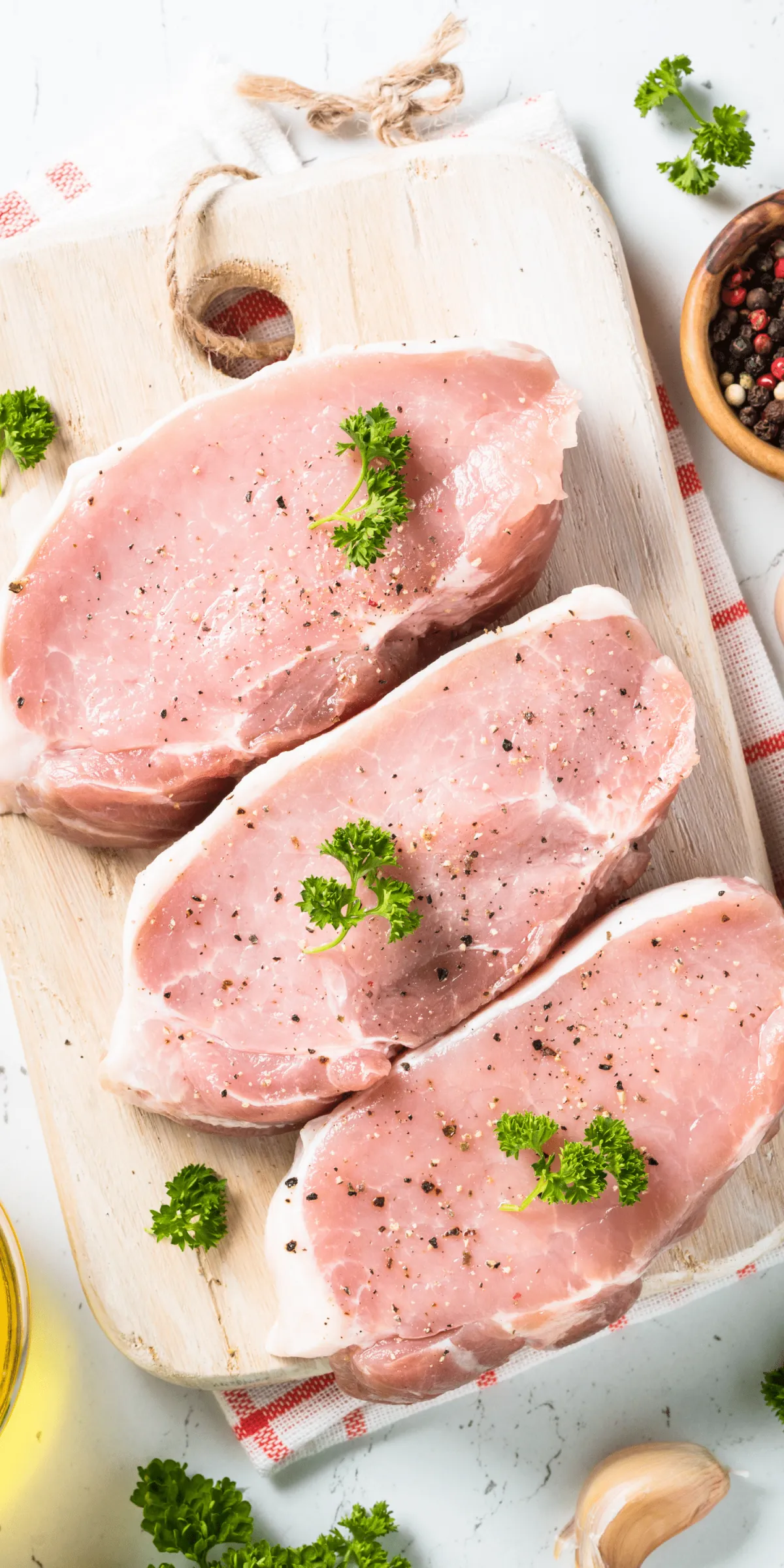
How can consuming pork aid in managing depression and lethargy in AUD?
- Tyrosine's Importance: Tyrosine is pivotal for the production of neurotransmitters such as dopamine and norepinephrine in the brain. Its deficiency can lead to depressive symptoms, commonly experienced by 40-65% of individuals with AUD.
-
AUD and Tyrosine: Chronic alcohol consumption can affect receptor tyrosine kinases, leading to a disruption in cell communication and a decrease in tyrosine levels.
-
Pork as a Solution: As an excellent source of tyrosine, pork can support the production of neurotransmitters, potentially improving both mental and physical performance under stress.
How does AUD impact tyrosine levels?
Chronic alcohol consumption disrupts receptor tyrosine kinases, impairing cell-to-cell communication and leading to a decrease in tyrosine levels, which can contribute to depression and lethargy.
How can incorporating pork into one's diet help combat these effects?
Pork, particularly pork loin, is a rich source of tyrosine. This amino acid is crucial for the production of neurotransmitters such as dopamine and norepinephrine, potentially enhancing mental and physical performance, even under stress.
Including pork in the diet can help replenish tyrosine levels, thereby mitigating depressive symptoms associated with AUD. It stands as a testament to the role of a balanced diet in promoting mental health and recovery.
Turn to Pumpkin Seeds for Anti-Stress Support in Anxiety Management During Alcohol Recovery
Unveiling the role of magnesium-rich pumpkin seeds in helping manage anxiety symptoms prevalent in individuals recovering from Alcohol Use Disorder.
Anxiety, characterized by symptoms such as rapid heart rate and shallow breathing, is a common occurrence in individuals dealing with Alcohol Use Disorder (AUD). The co-occurrence of anxiety disorders and AUD is 2 to 3 times more frequent than expected by chance, often contributing to the severity, persistence of AUD, and increasing the risk of relapse. Enter pumpkin seeds - a powerhouse of magnesium, often referred to as the "anti-stress mineral" due to its role in nerve cell relaxation and protection against over-stimulation.
How can the magnesium in pumpkin seeds aid in managing anxiety symptoms during recovery from AUD?
- Magnesium's Role: As the "anti-stress mineral", magnesium aids in the relaxation of nerve cells and preventing over-stimulation, thereby playing a crucial role in managing anxiety symptoms.
-
Anxiety and AUD: The co-occurrence of anxiety disorders with AUD is remarkably high, making anxiety management a critical part of AUD recovery. Anxiety symptoms can exacerbate the severity and persistence of AUD, as well as increase the risk of relapse.
-
Pumpkin Seeds as a Solution: With a whopping 45% of the daily recommended intake of magnesium, pumpkin seeds serve as an easy and delicious way to incorporate this anti-stress mineral into your diet.
How is anxiety related to Alcohol Use Disorder?
Anxiety disorders co-occur with Alcohol Use Disorder 2 to 3 times more often than by chance alone. This co-occurrence often results in increased severity and persistence of AUD, as well as a higher risk of relapse.
Why are pumpkin seeds beneficial for managing anxiety in individuals with AUD?
Pumpkin seeds are incredibly rich in magnesium, the "anti-stress mineral". Magnesium is known to aid in the relaxation of nerve cells and to prevent over-stimulation, making it an effective tool in managing anxiety symptoms during AUD recovery.
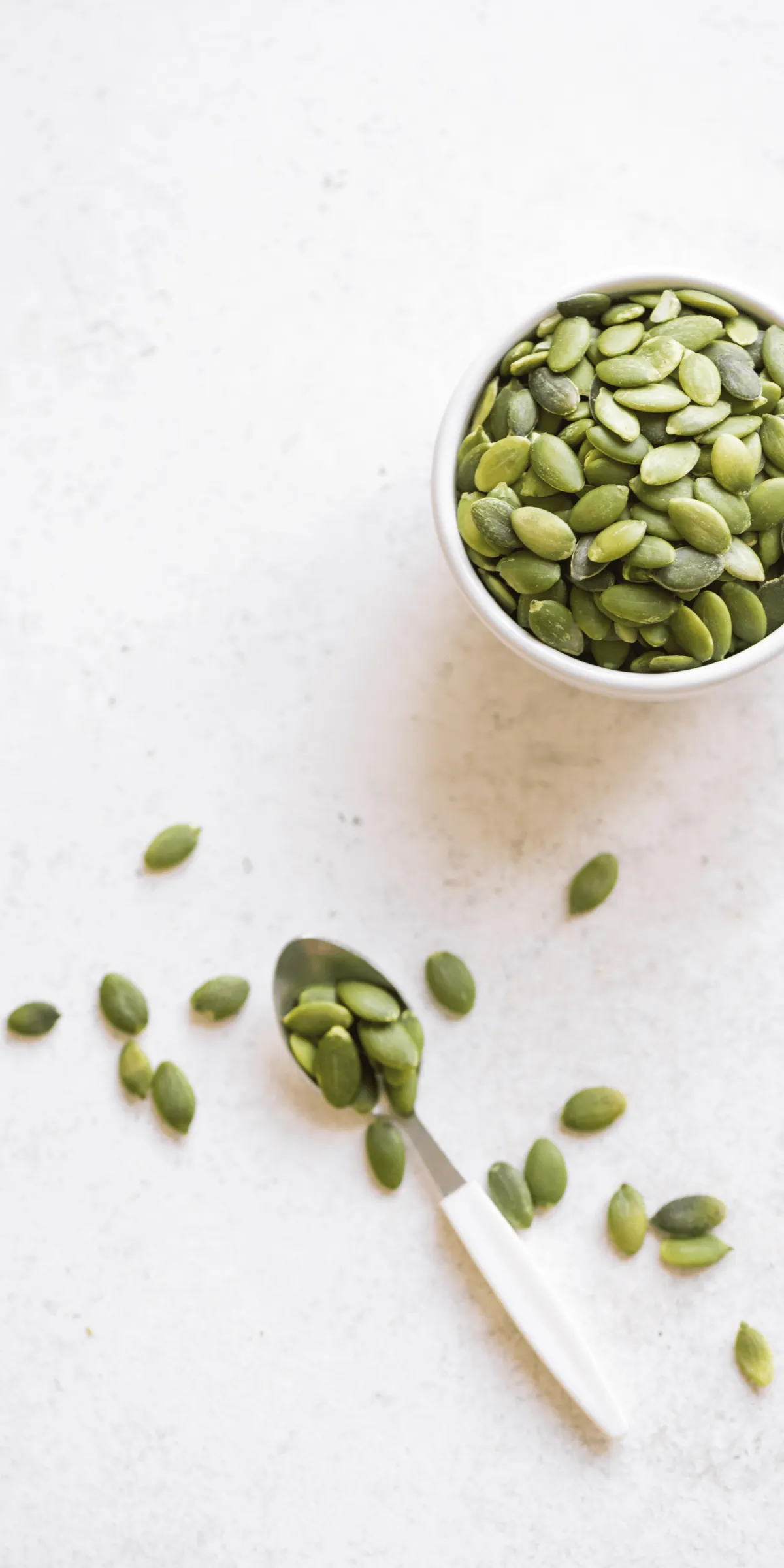
Parsley: A Powerful Tool for Boosting Kidney Function During Alcohol Recovery
Chronic heavy alcohol consumption can strain the liver's detoxification processes, placing added pressure on the kidneys to filter out waste and toxins. This added load can weaken the kidneys, impair their function, and potentially lead to kidney disease.

Parsley, rich in phytonutrients such as apiole and myristicin, can stimulate urine production, aiding kidney detoxification and easing the strain during alcohol recovery.
How can parsley help in maintaining kidney health during alcohol recovery?
- Parsley's Role: Parsley contains phytonutrients like apiole and myristicin that stimulate the kidneys to produce urine and eliminate toxins and fats.
-
Alcohol and Kidney Function: Heavy alcohol consumption can strain the liver's detoxification processes, leaving the kidneys to handle the excess load. Over time, this can lead to impaired kidney function or disease.
-
Parsley as a Solution: Incorporating parsley into your diet can help stimulate the kidneys to produce urine and cleanse them of toxins and fats, easing the strain of alcohol recovery on these vital organs
How can parsley support kidney health during alcohol recovery?
Parsley is rich in phytonutrients, such as apiole and myristicin, which stimulate the kidneys to produce urine and cleanse them of toxins and fats. Incorporating parsley into your diet can help maintain kidney health during alcohol recovery.
Consuming parsley regularly can provide significant support to your kidneys during alcohol recovery, helping them detoxify and maintain their overall health. Embracing this nutritional strategy can ease the stress on these essential organs, aiding in your path to recovery.
The Role of Salmon in Restoring Emotional Stability in Alcohol Recovery
Learn how the abundant EPA and DHA in salmon can help balance mood swings common in alcohol use disorder.
Individuals with alcohol use disorder (AUD) often crave spicy foods, potentially due to the activation of the brain's opioid reward system, which triggers the release of "feel-good" hormones. Freshly grated horseradish, renowned for its unique spice, may offer health benefits for these individuals. Studies reveal that horseradish has potential anti-cancer properties, significantly reducing the proliferation of breast and colon cancer cells, which are prevalent among individuals with AUD.
How can horseradish benefit individuals recovering from alcohol use disorder?
Aside from satisfying the common craving for spicy foods among individuals with AUD, horseradish may help reduce the risks of breast and colon cancers. It has shown promising results in studies, inhibiting the growth of cancer cells and potentially offering a valuable addition to recovery diets.
How does horseradish help in reducing the risk of breast and colon cancer?
Studies have shown the potential benefits of horseradish in combating cancer cells. One study found that horseradish nanoparticles could reduce human breast cancer cells by 80%, and another found that horseradish rhizomes could inhibit the growth of human colon cancer cells by up to 68%.
The introduction of horseradish into the diet can potentially offer substantial benefits in reducing the risk of cancers like breast and colon cancer, prevalent among individuals with AUD. As such, this pungent spice may serve as a potent ally in alcohol recovery, further emphasizing the essential role of diet in supporting health restoration.
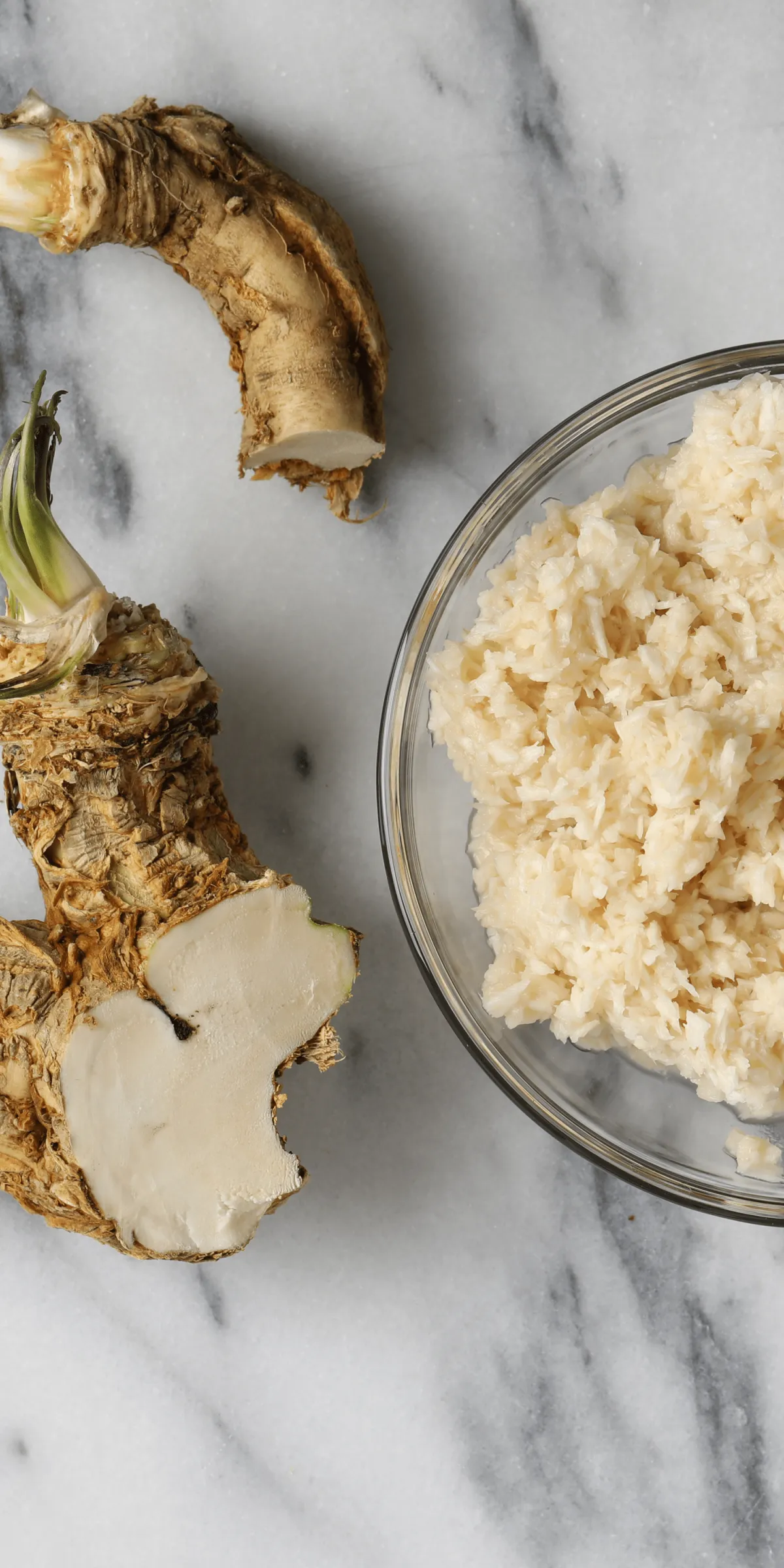
The Role of Salmon in Restoring Emotional Stability in Alcohol Recovery
Learn how the abundant EPA and DHA in salmon can help balance mood swings common in alcohol use disorder.
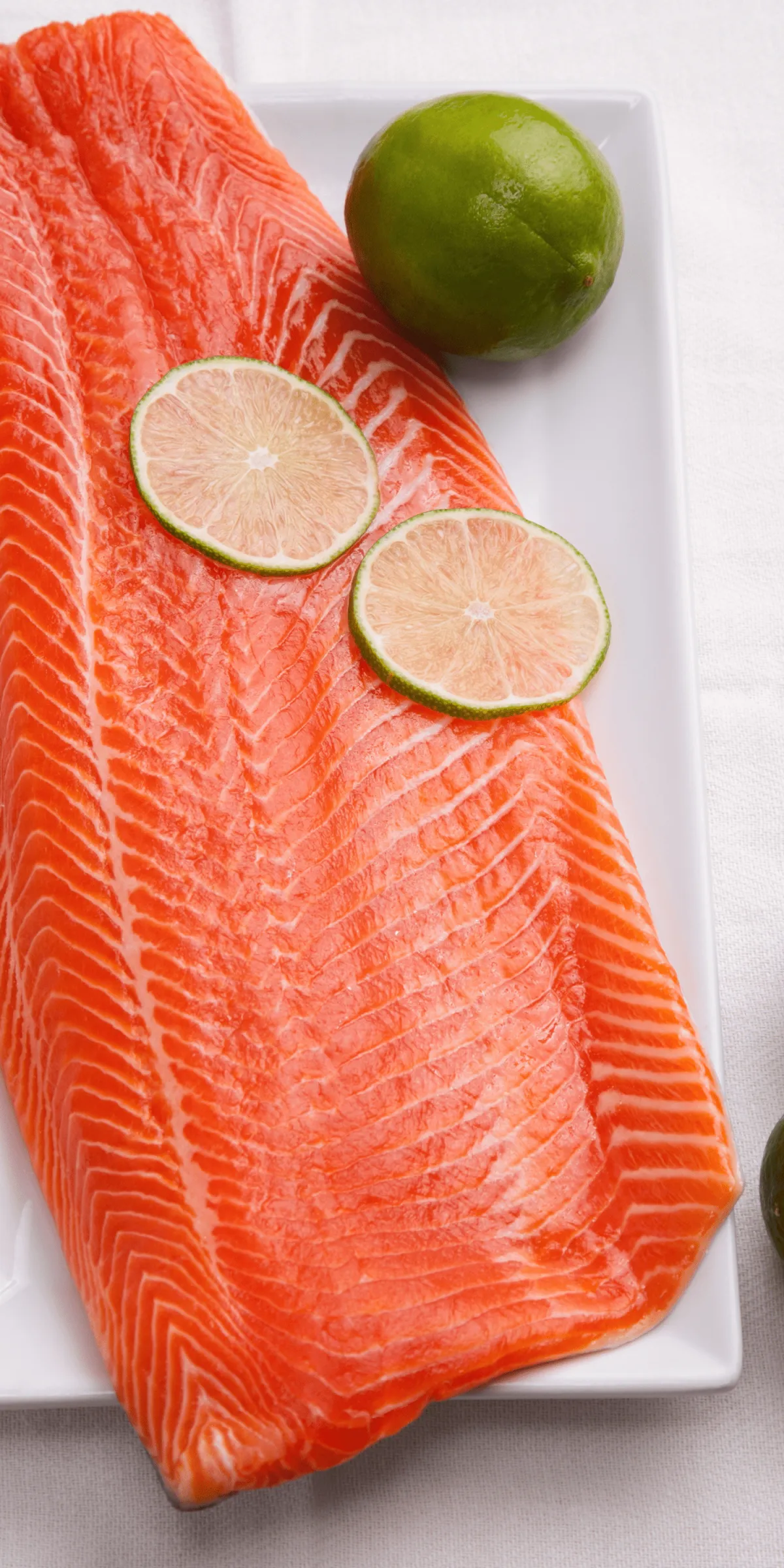
How Can Consuming Salmon Improve Emotional Stability in Individuals with Alcohol Use Disorder?
- Regular alcohol intake in individuals with alcohol use disorder (AUD) can lead to mood swings, hyperactivity, and depression.
-
Essential nutrients for emotional stability, such as EPA (eicosapentaenoic acid) and DHA (docosahexaenoic acid), are often depleted in individuals with AUD.
-
EPA and DHA contribute to the production of serotonin (which stabilizes moods and promotes happiness), dopamine (associated with pleasure), and GABA (linked to feelings of relaxation).
-
Salmon is an excellent source of EPA and DHA. A single 6-ounce serving offers approximately 1700 mg of EPA and 1200 mg of DHA.
How do EPA and DHA contribute to emotional stability in individuals with AUD?
EPA and DHA are crucial for the formation of neurotransmitters such as serotonin, dopamine, and GABA, which regulate mood, social behavior, and feelings of pleasure and relaxation. These nutrients are often depleted in individuals with AUD.
Including salmon in the diet can be a powerful strategy for individuals recovering from AUD, helping replenish the essential nutrients EPA and DHA and promoting emotional stability.
Bell Peppers: A Natural Aid in Alcohol Recovery and Craving Control
Explore the potential benefits of bell peppers in reducing alcohol cravings and protecting liver and kidney health in individuals with Alcohol Use Disorder.
Can Bell Peppers Help Curb Alcohol Cravings and Protect Vital Organs?
- Bell peppers contain caffeic acid, a phytonutrient that has shown protective effects on the liver and kidneys in the context of alcoholism.
-
Caffeic acid has also demonstrated a reduction in the accumulation of cholesterol and triglycerides in blood, liver, and kidney tissues, particularly in Alcohol Use Disorder.
-
Certain studies suggest that peppers can help lower blood sugar levels, thereby potentially reducing cravings for sugar and alcohol.
-
Regular consumption of green bell pepper juice is recommended by some experts as a way to mitigate alcohol cravings.
-
Unlike other pepper varieties, bell peppers do not contain capsaicin, making them a gentler choice for the stomach and mucous membranes which can be particularly sensitive during early abstinence.
Is it true that bell peppers can help with alcohol cravings?
Some studies and experts suggest so. Consuming the juice of half a cup of green bell peppers twice a day with meals is recommended by some as a way to eliminate alcohol cravings. It's a potential natural remedy worth exploring, especially given that bell peppers are gentler on the stomach and other mucous membranes compared to other pepper varieties.
The protective effects of bell peppers on vital organs and their potential role in curbing alcohol cravings make them a beneficial dietary addition for those in alcohol recovery. Their gentle nature further makes them an excellent choice during the sensitive phase of early abstinence.

Discover The Role Of Rosemary In Alleviating Depression Symptoms
Depression is common in individuals with alcohol use disorder. Studies show that chlorogenic acid in rosemary can help. It blocks opioid receptors, reducing cravings and depression linked to alcoholism.

It has antioxidants that reduce oxidative stress and can increase serotonin release, which is often low in depression. Rosemary improves brain circulation, adding to its antidepressant and neuroprotective effects.
How might rosemary help with depression in individuals with alcohol use disorder?
Rosemary contains chlorogenic acid, a phytochemical that shows promise in blocking opioid receptors in the brain and reducing cravings linked to depression and alcoholism. It also possesses antioxidant properties that can combat depressive processes by reducing oxidative stress.
What are other potential benefits of rosemary in this context?
Chlorogenic acid could stimulate the release of serotonin, often deficient in individuals with depression. Rosemary's circulation-boosting properties could further enhance its antidepressant effects and provide neuroprotective benefits.
Given its potential antidepressant properties and circulation-boosting abilities, rosemary could be a beneficial addition to the diet of those grappling with depression as part of their alcohol use disorder.
Are you ready to find out if the right nutrition protocol inside the The Anchored Abstinence Recipe™ online program will help you?
If you answer "yes", view your options below!
GET MY WEEKLY NEWSLETTER FOR EXPERT TIPS ON ALL THINGS ABSTINENCE
👉SIGN UP TO RECEIVE INFORMATION ON MY TOP TIPS FOR SELF-RELIANCE👈
*we will not spam, rent, or sell your information*
By providing this contact information you give ANGELINA PENNELL NUTRITION authorization to contact you via email to discuss tips, strategies, updates and share additional services or products. Welcome to the Anchored Weekly Newsletter!
Contact Us
Email: [email protected]
Message: Angelina Pennell Nutrition
Telephone: 1.403.620.3819
Address: 138 South Shore Point, Rocky View County, Alberta, Canada T1Z 0J1
Office Hours
Monday - Friday 9:00 am - 4:00 pm Mountain Time (11-6 ET)
Need to schedule a time outside of regular hours? Find a time here
ANGELINA PENNELL NUTRITION is 100% Virtual. Private and Group Coaching Options
Copyright © 2017 and Beyond by ANGELINA PENNELL NUTRITION. All Rights Reserved.
The information on this site is for educational use only. No information on this site is intended to diagnose disease or replace current medical treatment.
Please always consult your medical provider before making dietary, supplement or lifestyle changes.
